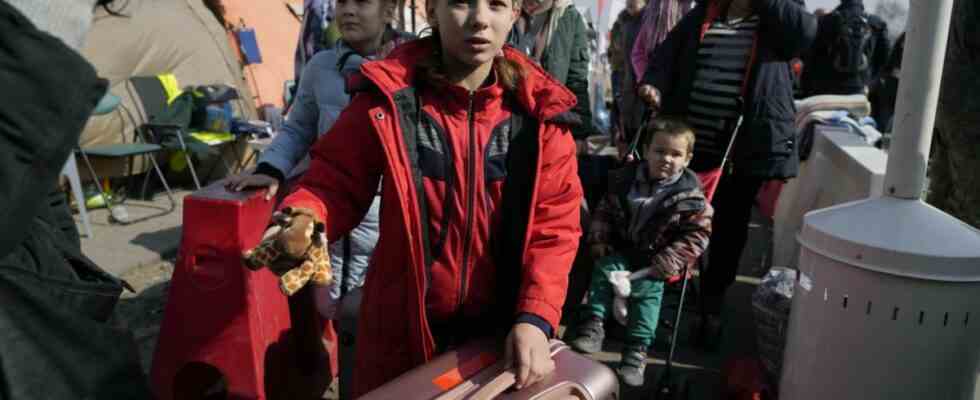The German Minister of the Interior, Nancy Faeser, is urging that the burden of taking in war refugees from Ukraine be borne in solidarity by all member states of the European Union. There should be no “unilateral” solutions, said the SPD politician on Monday afternoon before a meeting with the other ministers responsible for interior affairs in Brussels. Faeser praised the cooperation with the governments in Poland and France. Apparently she expects more from others.
The EU Commission wanted to present a ten-point plan at the meeting, which should also deal with the distribution of refugees and financial support for the states that take in a particularly large number of people. According to the United Nations, 3.8 million people have now left Ukraine, mostly women, children and the elderly. Of these, more than two million arrived in Poland, and around 267,000 were registered in Germany.
All reports and background information on the war in Ukraine – in the SZ in the morning and in the SZ in the evening. Our Messages–Newsletter brings you up to date twice a day. Free registration at sz.de/morgenabend. In our news app (download here) you can also subscribe to the news newsletter or our breaking news as a push message.
Nancy Faeser had written a letter to the EU Commission before the meeting with her Polish colleague Mariusz Kamiński. “It’s safe to say that our countries are now making most of the efforts to take in people from Ukraine and offer them protection,” the dpa said. It is obvious “that our resources and reception capacities will not be sufficient to cope with the growing influx of people”. The expenditure amounted to several billion euros, so the Commission must ensure that at least part of the costs are covered.
However, there will be no mandatory admission quotas for the member states of the EU. Apparently, this also has something to do with the dispute over the distribution of refugees during the 2015 crisis, in which fixed quotas were not enforceable. You don’t want to “scare off” any member states, said Faeser, who had earlier advocated fixed quotas. Instead, it is voluntary. An unspecified “index” should show how many people the individual states take in relation to their population.
The ministers in the Interior Council decided three weeks ago to apply the so-called mass influx directive for the first time. It grants refugees from Ukraine the freedom to travel in the EU for at least one year, regardless of whether they seek asylum, as well as the right to work, housing and education.
France’s Interior Minister Gérald Darmanin announced that there will also be common rules for the registration of refugees in the EU. A dispute has broken out between the government and the opposition in Germany. This should take place “above all to protect the refugees themselves,” said CDU party leader Friedrich Merz on Monday. Merz referred to reports about women and children who could no longer be found with an unknown whereabouts. There is evidence of organized crime and human trafficking.
Faeser currently rejects general registration. One speaks above all of children and women who had been on the run for days, she told the Berliner daily mirror.
In the dispute over the Russian demand for gas bills to be paid in rubles, the countries of the G-7 group have agreed on a common stance: they reject it. That’s what Federal Economics and Climate Protection Minister Robert Habeck (Greens) said on Monday in Berlin after a virtual meeting with the G-7 energy ministers. Germany currently chairs the group of states, which includes Germany, France, Italy, Japan, Canada, the United States and Great Britain.
The ministers agreed that the demands for payment in rubles were “a unilateral and clear breach of the existing contracts,” said Habeck. Russian President Vladimir Putin announced last week that gas deliveries to “unfriendly states” would only be billed in rubles, which would push up the ruble’s exchange rate. Putin is trying to split the West, Habeck said, but there is a great deal of unity.
The Kremlin expressed “concern” on Monday about statements by US President Joe Biden that Vladimir Putin could not stay in power in Russia. “This is a statement that naturally causes concern,” said Kremlin spokesman Dmitry Peskov, according to the Interfax agency. On Saturday in Warsaw, Biden called Putin a “dictator” in view of Russia’s war against Ukraine and said: “For God’s sake, this man cannot stay in power.” On Sunday he denied that his statement should be understood as calling for Putin’s overthrow. Several Western governments also distanced themselves. Peskow now said: “We are following the US President’s statements very carefully. We are meticulously recording them and will continue to do so.”

